Pre-Health Professions Track

Begin your journey to a fulfilling healthcare profession at Simmons
Are you passionate about making a difference in the lives of others? Do you envision a future dedicated to healing, research, and patient care? The Simmons School of Sciences and Health Professions offers a comprehensive Pre-Health Professions Track, meticulously designed for ambitious students like you who aspire to enter fields such as medicine, nursing, dentistry, athletic training, occupational therapy, physical therapy, physician assistant studies, pharmacy, optometry, veterinary medicine, and many more.
We understand the rigorous demands of health professional schools and are committed to providing you with the strongest possible foundation, combining rigorous science curriculum, personalized advising, and invaluable research and clinical opportunities. Embark on your journey to a fulfilling health profession with us, and discover how the School of Sciences and Health Professions can help you achieve your dreams!
Academic Requirements for Health Professions Programs
These requirements are provided as a guideline. Admission requirements vary by program and institution. You should examine the school-specific admission requirements at your school(s) of choice to be sure you meet all of their requirements when making your course plan at Simmons.
Please review the guidelines for your chosen pathway, consider individual circumstances, and discuss questions with your advisor(s).
Planning your Pathway to Athletic Training School
Recommended majors
- We recommend majoring in Exercise Science if interested in Athletic Training.
- Other possible majors include Psychology and Public Health.
Requirements for all majors
- Simmons requires that all undergraduates complete a minimum of 128 credits of coursework, fulfill PLAN and major/program requirements, and submit a senior audit form to graduate.
- You may declare a major after you have earned 32 credits and must declare prior to earning 80 credits.
- All majors must submit CPR/AED and First Aid Certifications by March 1 of the senior year.
Typical Athletic Training School Prerequisite Requirements
Athletic Training program admission requirements vary greatly by school. You are encouraged to research the prerequisites for your desired schools. Many schools will expect applicants to take GRE and to complete the following courses. For school-specific requirements, visit school websites or the CAATE Directory.
| Subject | # of Semesters | Course(s) |
|---|---|---|
| Biology | 1 | BIOL113: General Biology (SCI) |
| Chemistry | 1-2 | CHEM 111: Principles of General Chemistry CHEM 112: Principles of Organic Chemistry |
| Anatomy & Physiology | 2 | BIOL 231: Anatomy & Physiology I (SCI) BIOL 232: Anatomy & Physiology II (SCI) |
| Psychology | 1 | PSYC232: Health Psychology |
| Human Movement/Biomechanics | 1 | BIOL362: Kinesiology |
| Nutrition | 1 | NUTR112: Introduction to Nutrition Science (or higher) |
| Statistics | 1 | STAT 118: Introductory Statistics and/or higher level (QL) |
| Exercise Physiology | 1 | BIOL/EXSC332: Exercise Physiology |
| Physics* | 1-2 | PHYS110: Introductory Physics *PHYS111: Introductory Physics II |
| Medical Terminology* | 1 | Can be completed via certificate via free online course |
* Not required at all MSAT programs, although encouraged
Planning your Pathway to a Certified Anesthesiologist Assistant Program
Recommended majors
We recommend majoring in one of these areas if you are interested in becoming an Anesthesiologist Assistant:
Requirements for all majors
- Simmons requires that all undergraduates complete a minimum of 128 credits of coursework, fulfill PLAN and major/program requirements, and submit a senior audit form to graduate.
- All students are required to complete a capstone before graduating. Consult with your advisor on how best to fill this requirement.
- You may declare a major in the beginning of your first year fall semester. You must declare prior to earning 80 credits.
Typical Anesthesiologist Assistant Program Prerequisite Requirements
| Subject | # of Semesters | Simmons Courses to Satisfy Prerequisites |
|---|---|---|
| Biology | 1-2 | BIOL113: General Biology BIOL218 General Biology II |
| Microbiology* | 1 | BIO221- Microbiology |
| Cell Biology* | 1 | BIOL225- Cell Biology |
| Chemistry | 2-4 | CHEM 111: Principles of General Chemistry I CHEM112: Principles of Organic Chemistry CHEM224: Organic Chemistry I CHEM345: Biochemistry |
| Anatomy & Physiology | 1-2 | BIOL 231: Anatomy & Physiology I BIOL 232: Anatomy & Physiology II |
| English | 2 | BOS101: Writing Intensive Course ENGL Elective: [Gen Ed Requirement] Capstone Course Requirement |
| Mathematics | 2 | MATH120: Calculus I MATH121: Calculus II |
| Statistics | 1 | STAT118- Introductory Statistics |
| Physics | 1-2 | PHYS110: Introductory Physics PHYS111: Introductory Physics II |
| Medical Terminology* | 1 | Can be completed via certificate via free online course |
* Not required at all CAA programs, although encouraged. Please review the prerequisites for each CAA program of interest.
Planning your Pathway to a Master's in Behavior Analysis
Recommended majors
- Biochemistry
- Biology
- Health and Exercise Science
- Neuroscience and Behavior
- Nutrition and Dietetics
- Physics
- Psychology
Requirements for all majors
- Simmons requires that all undergraduates complete a minimum of 128 credits of coursework, fulfill PLAN and major/program requirements, and submit a senior audit form to graduate.
- You may declare a major after you have earned 32 credits and must declare prior to earning 80 credits.
Prerequisites for the Behavior Analysis Program
Simmons University Masters of Behavior Analysis program does not have specific prerequisite course requirements for admission into the program, although preference is given to students who successfully complete PSYC 203 or an equivalent research course.
For program-specific information and faculty contacts, visit the Behavior Analysis program page.
Planning your Pathway to a Chiropractic Medicine Program
Recommended majors
Requirements for all majors
- Simmons requires that all undergraduates complete a minimum of 128 credits of coursework, fulfill PLAN and major/program requirements, and submit a senior audit form to graduate.
- You may declare a major after you have earned 32 credits and must declare prior to earning 80 credits.
- All majors must submit CPR/AED and First Aid Certifications by March 1 of the senior year.
Typical Chiropractic Medicine Program Prerequisite Requirements
Chiropractic Medicine program admission requirements vary greatly by school. You are encouraged to research the prerequisites for your desired schools. Many schools will expect applicants to take MCAT or GRE and to complete the following courses. For school-specific requirements, visit school websites or the Association of Chiropractic Colleges (ACC) Directory.
| Subject | # of Semesters | Simmons Courses to Satisfy Prerequisites |
|---|---|---|
| Biology | 1 | BIOL 218: General Biology II |
| Chemistry | 2 | CHEM 113: General & Quantitative Chemistry I CHEM 216: General & Quantitative Chemistry II |
| Anatomy & Physiology | 2 | BIOL 231: Anatomy & Physiology I BIOL 232: Anatomy & Physiology II |
| Psychology | 1 | 200 Level (or Higher) Psychology Course (Developmental Psych, Health Psychology) |
| Human Movement/Biomechanics | 1 | BIOL362/EXSC362: Kinesiology |
| Nutrition | 1 | 200 Level (or Higher) Nutrition Course |
| Statistics* | 1 | STAT 118: Introductory Statistics and/or higher level |
| Exercise Physiology | 1 | BIOL/EXSC332: Exercise Physiology |
* Not required at all DC programs, although encouraged. Please review the prerequisites for each DC program of interest.
Planning your pathway to Dental School
Researching Dental Schools
Admission requirements vary by program and institution. It is strongly recommended that students begin researching school-specific requirements early to ensure they are completing all required prerequisites. To find school-specific requirements, visit their websites or the American Dental Association (ADA) website.
Qualities of Strong Professional School Applicants
- Apply early (early summer) of the year before the expected year of matriculation.
- Submit applications to schools that best match your strengths.
- A high GPA in science and non-science courses – a competitive GPA is above a 3.5
- High Scores on the DAT
- Active in volunteer/work experience/extracurricular events
- Has significant clinical experience – shadowing & volunteer work are essential!
- Well known by professors
- Great letters of recommendation and evaluations
- It is recommended that applicants complete prerequisite courses at their home institution. If this is not possible, they should be completed at an accredited 4-year institution.
Typical Dental School Prerequisite Requirements
| Subject | # of Semesters | Simmons Courses to Satisfy Prerequisites |
|---|---|---|
| Biology | 3+ semesters | *BIOL 113: General Biology (SCI) *BIOL 225: Cell Biology (SCI) At least one additional course at the 200+ level: one that covers the structure and functions of systems prior to the DAT: BIOL 222: Animal Physiology, or BIOL 231 & 232: Anatomy & Physiology I & II |
| General Chemistry (C- grade requirement for all CHEM prereqs.) | 2 semesters | *CHEM 113: General Chemistry I or *CHEM 115: Intensive General Chemistry *CHEM 216: General Chemistry II & Quantitative Analysis OR *CHEM 226: Analytical Chemistry (for Biochemistry and Chemistry Majors) |
| Organic Chemistry | 2 semesters | *CHEM 224: Organic Chemistry I (SCI) *CHEM 225: Organic Chemistry II (SCI) |
| Mathematics | 3 semesters | MATH 120: Calculus I (QL, prerequisite for PHYS 114) MATH 121: Calculus II (QL, prerequisite for PHYS 115) STAT 118: Introductory Statistics and/or higher level (QL) |
| Biochemistry | 1 semester | CHEM 345: Biochemistry (recommended) or CHEM 223: Principles of Biochemistry (SCI) |
| Physics | 2 semesters | PHYS 114: Fundamentals of Physics I (IL) PHYS 115: Fundamentals of Physics II (SCI) |
| English Composition | 2 semesters | ENGL: choose a writing intensive course (Can be fulfilled through ALA or Writing Intensive); WRI 101 fulfills 1 semester |
| Studio Art | 1 semester | Many dental schools require at least on studio arts course where students work with their hands (eg. Ceramics, Sculpture, Jewelry Making) See catalog for course listings. It is often acceptable to take an art course at a community college. It is strongly recommended to consult with your advisor before cross-registering at MassArt as these courses are typically very intense. |
| Social Sciences (strongly recommended) | 2 semester | PSYC 101: Introduction to Psychological Science (or higher) SOCI 101: Introduction to Sociology OR A healthcare sociology course (options include SOCI 241, SOCI 245, SOCI 345, or similar courses) (often fulfills GH or DEIJ) |
*Should be taken before the DAT
Note: Additional upper-level science classes are always beneficial, especially if students choose a major outside the sciences, be sure to refer to Dental School websites for school-specific requirements.
Simmons Timelines for Pre-Dental students
You will consult with the Pre-Health Advisors to determine which timeline will help you become the strongest possible candidate at the time of your application to dental school.
Traditional Timeline
This timeline is an example of how you may wish to take courses if you plan to go directly from Simmons to Dental School, with only the summer after graduation as a break. This would be an appropriate route for you if you have no doubt that you want to attend dental school and have a strong academic performance in your first two years of college. It is common for students to start out on the “Traditional” Timeline in their first year, and then transition to the Growth Year Timeline later in their career for a variety of reasons (i.e. academic rigor, DAT preparation timeline, wanting to work before starting dental school, etc.).This path is designed to prepare you to take the DAT in the spring semester of your junior year.
Year PLAN Requirements Fall Spring Summer 1 WRI 101: Writing Boston SIM 100: Simmons (2 cr.)
CHEM 113/115: General Chemistry I
BIOL 113: General BiologyCHEM 224: Organic Chemistry I
MATH 120: Calculus IExposure to Dentistry
Community Service2 CHEM 225: Organic Chemistry II
MATH 121: Calculus IICHEM 216: General Chemistry II
OR
CHEM 226: Analytical Chemistry (Chemistry & Biochemistry majors)
BIOL 225: Cell BiologyContinue Service
Research3
Simmons 200: Extend, 2 cr. PHYS 114: Physics I
BIOL 222: Animal Physiology (or BIOL 231 Fall, BIOL 232 Spring)
DAT Preparation
Review the Committee Letter ProcessPHYS 115: Physics II
DAT Preparation
Take DAT Exam by mid-April
Committee Letter ProcessResearch or Clinical Experience
Apply by June/July
4 Capstone (in major) Dental School Interviews Dental School Interviews Take a break before Dental School Additional Required Coursework
These courses are offered in both Fall and Spring semesters, and therefore offer you greater flexibility when adding them to your academic plan.
STAT 118: Introductory Statistics (or higher, QL)
*PSYC 101: Introduction to Psychological Science (or higher)
*1 Sociology Course: Intro to Sociology or a healthcare sociology course (options include SOCI 101, SOCI 241, SOCI 245, SOCI 345, or similar courses)
ENGL: choose a writing intensive course (Can be fulfilled through ALA or Writing Intensive)
Studio Art Course: Many dental schools require at least one studio arts course where students work with their hands (e.g. Ceramics, Sculpture, Jewelry Making) (ALA)
Some Key Content Areas (ALA, GH, and SCI) and Key Skills Areas (DEIJ, QL, IL, WI, and Leadership) requirements may be fulfilled with the above Pre-Health courses.Growth Year(+)
This timeline is an example of how you may wish to take courses if you plan to take at least one growth year between Simmons and dental school. Approximately 80% of Simmons Pre-Health students and 50% of students nationally take at least one growth year.This schedule is designed to prepare you to take the DAT in the spring semester of your senior year. The exam should be taken in the calendar year prior to which you plan to enter medical school (for example, if you are applying in 2026 for entrance to medical school in Fall 2027, you should take the exam in Spring 2026). If you wish to take additional years before applying to dental school, the DAT, committee letter process, and application timeline can be moved to later years (although the times of year will always remain the same). Pre-Health Advising is available to alumni to support then during their growth years.
Year PLAN Requirements Fall Spring Summer 1 WRI 101: Writing Boston SIM 100: Simmons (2 cr.)
CHEM 113/115: General Chemistry
BIOL 113: General BiologyCHEM 224: Organic Chemistry I
MATH 120: Calculus IExposure to Dentistry
Community Service2 CHEM 225: Organic Chemistry II
MATH 121: Calculus IICHEM 216: General Chemistry II
OR
CHEM 226: Analytical Chemistry (Chemistry & Biochemistry majors)
BIOL 225: Cell BiologyContinue Service
Research3 Simmons 200: Extend, 2 cr. PHYS 114: Physics I
BIOL 222: Animal Physiology (or BIOL 231 Fall, BIOL 232 Spring)PHYS 115: Physics II Continue Service
Research
4 Capstone (in major) CHEM 345: Biochemistry
DAT Preparation &
Review the Committee ProcessDAT Preparation
Take DAT Exam by mid-April
Committee Letter ProcessResearch or Clinical Experience
Apply by
June/JulyGrowth Year Dental School Interviews Dental School Interviews Take a break before Dental School Additional Required Coursework
These courses are offered in both Fall and Spring semesters, and therefore offer you greater flexibility when adding them to your academic plan.
STAT 118: Introductory Statistics (or higher, QL)
*PSYC 101: Introduction to Psychological Science (or higher)
*1 Sociology Course: Intro to Sociology or a healthcare sociology course (options include SOCI 101, SOCI 241, SOCI 245, SOCI 345, or similar courses)
ENGL: choose a writing intensive course (Can be fulfilled through ALA or Writing Intensive)
Studio Art Course: Many dental schools require at least one studio arts course where students work with their hands (e.g. Ceramics, Sculpture, Jewelry Making) (ALA)
Some Key Content Areas (ALA, GH, and SCI) and Key Skills Areas (DEIJ, QL, IL, WI, and Leadership) requirements may be fulfilled with the above Pre-Health courses.Grow into Chemistry
This timeline will allow you to ease into the rigorous Chemistry sequence required for dental school. It allows time to adjust to a college curriculum and take a health science-focused survey of Chemistry course prior to starting the Pre-Dental Chemistry sequence with CHEM 113: General Chemistry I in your sophomore year. Please note that this timeline will require at least one growth year between graduation from Simmons and starting dental school. Approximately 80% of Simmons Pre-Health students and 50% of students nationally take at least one growth year.
This schedule is designed to prepare you to take the DAT in the spring semester of your senior year. The exam should be taken in the calendar year prior to which you plan to enter medical school (for example, if you are applying in 2026 for entrance to medical school in Fall 2027, you should take the exam in Spring 2026). If you wish to take additional years before applying to dental school, the DAT, committee letter process, and application timeline can be moved to later years (although the times of year will always remain the same). Pre-Health Advising is available to alumni to support them during their growth years.Year PLAN Requirements Fall Spring Summer 1 WRI 101: Writing Boston SIM 100: Simmons (2 cr.)
BIOL 113: General BiologyCHEM 110: General, Organic, and
Biological Chemistry
MATH 120: Calculus I
Exposure to Dentistry
Community Service2 CHEM 113: General Chemistry I
MATH 121: Calculus IICHEM 224: Organic Chemistry I
BIOL 225: Cell BiologyContinue Service
Research3 Simmons 200: Extend, 2 cr. CHEM 225: Organic Chemistry II
PHYS 114: Physics I
BIOL 222: Animal Physiology (or BIOL 231 Fall, BIOL 232 Spring)CHEM 216: General Chemistry II
OR
CHEM 226: Analytical Chemistry (Chemistry & Biochemistry majors)
PHYS 115: Physics II
DAT Preparation
Take DAT Exam by mid-April
Committee Letter ProcessResearch or Clinical Experience
Apply by
June/July4 Capstone (in major) CHEM 345: Biochemistry
Dental School Interviews
Dental School Interviews
Take a break before Dental SchoolAdditional Required Coursework
These courses are offered in both Fall and Spring semesters, and therefore offer you greater flexibility when adding them to your academic plan.
STAT 118: Introductory Statistics (or higher, QL)
*PSYC 101: Introduction to Psychological Science (or higher)
*1 Sociology Course: Intro to Sociology or a healthcare sociology course (options include SOCI 101, SOCI 241, SOCI 245, SOCI 345, or similar courses)
ENGL: choose a writing intensive course (Can be fulfilled through ALA or Writing Intensive)
Studio Art Course: Many dental schools require at least one studio arts course where students work with their hands (e.g. Ceramics, Sculpture, Jewelry Making) (ALA)
Some Key Content Areas (ALA, GH, and SCI) and Key Skills Areas (DEIJ, QL, IL, WI, and Leadership) requirements may be fulfilled with the above Pre-Health courses.
Applying to Dental School
Application materials must be submitted through AADSAS.
GPA Calculation
Most professional schools will calculate your Overall GPA as well as your science and math GPA for admission. Math/science GPA is calculated using scores from any course taken in the departments of Biology, Chemistry, Physics, and Math (BCPM GPA).
- AP credits are NOT computed into your GPA
- ALL post-secondary coursework will be used to compute your GPA for admission, even if they are not included in your Simmons GPA. Dual-enrollment and transfer courses DO count toward your GPA for admission.
- “W” grades do not count in your GPA. However, avoid “W” grades. Professional schools expect students to consistently carry a full-time course load (16-18 credits).
Dental Admission Test (DAT)
In general, most U.S. dental schools will expect applicants to take the Dental Admission Test (DAT). Up to date information regarding the current DAT is available on the ADA website.
The DAT is a 5 hour (with breaks) computer-based, multiple choice exam administered through Prometric Test Centers in the U.S. and its territories. Testing appointments are available year-round. Individuals must wait 90 days between testing attempts. Examinees who have tested three or more times must apply for permission to take the test again. Some students find that it is helpful to take a preparation course for the DAT. Currently it costs $460 per attempt of the DAT.
Sections of the DAT:
- Natural sciences (biology, general chemistry, and organic chemistry)
- Perceptual ability (two- and three-dimensional problem solving)
- Reading comprehension (dental and basic sciences)
- Quantitative reasoning (mathematical problems in algebra, numerical calculations, conversions, etc.)
Planning your Pathway to an Exercise Physiology Program
Recommended majors
- We recommend majoring in Exercise Science if interested in Exercise Physiology.
Requirements for all majors
- Simmons requires that all undergraduates complete a minimum of 128 credits of coursework, fulfill PLAN and major/program requirements, and submit a senior audit form to graduate.
- You may declare a major after you have earned 32 credits and must declare prior to earning 80 credits.
- All majors must submit CPR/AED and First Aid Certifications by March 1 of the senior year.
Typical Exercise Physiology Program Prerequisite Requirements
Exercise Physiology Graduate Program admission requirements vary by school. You are encouraged to research the prerequisites for your desired schools. Many schools will expect applicants to take GRE and to complete the following courses. For school-specific requirements, visit school websites or the Clinical Exercise Physiology CEPA Directory.
| Subject | # of Semesters | Simmons Courses to Satisfy Prerequisites |
|---|---|---|
| Anatomy & Physiology | 2 | BIOL 231: Anatomy & Physiology I (SCI) BIOL 232: Anatomy & Physiology II (SCI) |
| Statistics | 1 | STAT 118: Introductory Statistics and/or higher level (QL) |
| Chemistry | 1 | CHEM111: Principles of General Chemistry |
| Exercise Assessment & Prescription | 1 | EXSC361: Exercise Assessment & Prescription |
| Exercise Physiology | 1 | BIOL/EXSC332: Exercise Physiology |
* Not required at all OTD programs, although encouraged. Please review the prerequisites for each OTD program of interest.
Planning your Pathway to an Advanced Nursing Degree
Simmons School of Nursing offers several degree programs at the master's and doctoral level.
The specific admission requirements for each graduate nursing program are listed on the how to apply page.
Recommended Majors
- Biochemistry
- Biology
- Health and Exercise Science
- Neuroscience and Behavior
- Nursing
- Nutrition and Dietetics
- Psychology
Requirements for all majors
- Simmons requires that all undergraduates complete a minimum of 128 credits of coursework, fulfill PLAN and major/program requirements, and submit a senior audit form to graduate.
- You may declare a major after you have earned 32 credits and must declare prior to earning 80 credits.
Typical Nursing Program Prerequisite Requirements
Please visit the program page for your chosen program for details.
| Subject | # of Semesters | Simmons Courses to Satisfy Prerequisites |
|---|---|---|
| Microbiology | 1 | BIOL221- Microbiology |
| Chemistry | 1 | CHEM 113: General & Quantitative Chemistry I |
| Anatomy & Physiology | 2 | BIOL 231: Anatomy & Physiology I BIOL 232: Anatomy & Physiology II |
| Statistics | 1 | STAT118- Introductory Statistics |
| Pathophysiology | 1 | Pathophysiology |
| Developmental Psychology | 1 | PSYC235-Developmental Psychology |
Planning your Pathway to a Master's in Nutrition and Health Promotion
Recommended majors
Requirements for all majors
- Simmons requires that all undergraduates complete a minimum of 128 credits of coursework, fulfill PLAN and major/program requirements, and submit a senior audit form to graduate.
- You may declare a major after you have earned 32 credits and must declare prior to earning 80 credits.
Prerequisites for the Nutrition and Health Promotion Program at Simmons
- Inorganic Chemistry with a lab (at Simmons, CHEM 111 or CHEM 113)
- Organic Chemistry with a lab (at Simmons, CHEM 112)
- Human Anatomy and Physiology I and II with labs (at Simmons, BIOL 231 and BIOL 232)
- Introductory Nutrition (at Simmons, NUTR 111* or NUTR 112)
- Introduction to Community Nutrition (at Simmons, NUTR 237)
- Introductory Biochemistry (at Simmons, CHEM 223)
- Introductory Statistics (at Simmons, STAT 118)
For program-specific information and faculty contacts, visit the Nutrition and Health Promotion program page.
Planning your pathway to Medical School
What does it mean to be a Pre-Med student?
The term "Pre-Med" refers to students considering continued education and careers in the following areas:
- M.D: Doctor of Medicine, Allopathic Medicine
- D.O.: Doctor of Osteopathy
- M.D./PH.D.
Types of Medical Schools
There are two types of medical schools in the United States that allow students to go on to practices as general physicians: Allopathic (MD) medical schools, and Osteopathic (DO) medical schools. Most of these resources apply to both MD and DO schools. This article from Medical School HQ does a great job outlining the differences (and many similarities) between MDs and DOs.
Admission to medical school is very competitive. Nationally, the percentage of applicants who are accepted varies from year to year but is generally less than 50% of the applicant pool. Accepted applicants nationally have an overall undergraduate grade point average of 3.5-3.6. Accepted applicants also have high scores on the MCAT averaging from 504 (DO) to 510 (MD).
Researching Medical Schools
Admission requirements vary by program and institution. To find school-specific requirements visit medical school websites directly in addition to the following resources:
- MD Schools: Medical School Admissions Requirements (MSAR) guide
The MSAR, published by the Association of American Medical Colleges (AAMC), provides information on course requirements by school, acceptability of AP, community college, and online coursework for MD Schools. Some information on the MSAR is free to all students, and a 1-year subscription to access all information is $28. - DO Schools: U.S. Colleges of Osteopathic Medicine
Qualities of Strong Professional School Applicants
- Apply early (early summer) of the year before the expected year of matriculation.
- Submit applications to schools that best match your strengths.
- A high GPA in science and non-science courses – a competitive GPA is above a 3.5 – 3.6
- High Scores on the MCAT.
- Active in volunteer/work experience/extracurricular events.
- Has significant clinical experience – shadowing & volunteer work are essential!
- Well known by professors.
- Great letters of recommendation and evaluations.
- It is recommended that applicants complete prerequisite courses at their home institution. If this is not possible, they should be completed at an accredited 4-year institution.
Typical Medical School Prerequisite Requirements
| Subject | # of Semesters | Simmons Courses to Satisfy Prerequisites |
|---|---|---|
| Biology | 2 semesters required; 3+ strongly recommended | *BIOL 113: General Biology or BIOL 115: Advanced General Biology (both SCI) *BIOL 225: Cell Biology *Two additional Biology courses at the 200+ level, including one that covers the structure and functions of systems prior to the MCAT: BIOL 222: Animal Physiology, or BIOL 231 & 232: Anatomy & Physiology I & II |
| General Chemistry | 2 semesters | *CHEM 113: General Chemistry I or *CHEM 115: Intensive General Chemistry *CHEM 216: General Chemistry II & Quantitative Analysis |
| Organic Chemistry | 2 semesters | *CHEM 224: Organic Chemistry I (SCI) *CHEM 225: Organic Chemistry II (SCI) |
| Mathematics | 3 semesters | *MATH 120: Calculus I (QL, prerequisite for PHYS 114) *MATH 121: Calculus II (QL, prerequisite for PHYS 115) STAT 118: Introductory Statistics and/or higher level (QL) |
| Physics | 2 semesters | *PHYS 114: Fundamentals of Physics I (IL) *PHYS 115: Fundamentals of Physics II (SCI) *PHYS 201: Wave Phenomena (strongly recommended) |
| Biochemistry | 1 semester | *CHEM 345: Biochemistry (recommended) or CHEM 223: Principles of Biochemistry (SCI) |
| English Composition | 2 semesters | ENGL: choose a writing intensive course (Can be fulfilled through ALA or Writing Intensive); WRI 101 fulfills 1 semester |
| Psychology | 1 semester | *PSYC 101: Introduction to Psychological Science (or higher) |
| Sociology | 1 semester | *SOCI 101: Introduction to Sociology OR A healthcare sociology course (options include SOCI 241, SOCI 245, SOCI 345, or similar courses) (often fulfills GH or DEIJ) |
*Should be taken before MCAT
Simmons Timelines for Pre-Med students
You will consult with the Pre-Health Advisors to determine which timeline will help you become the strongest possible candidate at the time of your application to medical school.
Traditional Timeline
This timeline is an example of how you may wish to take courses if you plan to go directly from Simmons to Medical School, with only the summer after graduation as a break. This would be an appropriate route for you if you have no doubt that you want to attend medical school and have a strong academic performance in your first two years of college. It is common for students to start out on the “Traditional” Timeline in their first year, and then transition to the Growth Year Timeline later in their career for a variety of reasons (i.e. academic rigor, MCAT preparation timeline, wanting to work before starting medical school, etc.).This path is designed to prepare you to take the MCAT in the spring semester of your junior year.
Year PLAN Requirements Fall Spring Summer 1 WRI 101: Writing Boston SIM 100: Simmons (2 cr.)
CHEM 113/115: General Chemistry I
BIOL 113: General BiologyCHEM 216: General Chemistry II
& Quantitative Analysis
MATH 120: Calculus IExposure to Medicine
Community Service2 CHEM 224: Organic Chemistry I
PHYS 114: Physics I
AND
MATH 121: Calculus IICHEM 225: Organic Chemistry II
PHYS 115: Physics II
BIOL 225: Cell BiologyContinue Service
Research3
Simmons 200: Extend, 2 cr. CHEM 345: Biochemistry
PHYS 201: Wave Phenomena
MCAT Preparation
Review the Committee Letter ProcessMCAT Preparation
MCAT Exam strongly recommended by mid-April
Committee Letter ProcessApply by June/July
Secondary Applications4 Capstone (in major) Med School Interviews Med School Interviews Take a break before Med School Additional Required Coursework
These courses are offered in both Fall and Spring semesters, and therefore offer you greater flexibility when adding them to your academic plan.
STAT 118: Introductory Statistics (or higher, QL)
*PSYC 101: Introduction to Psychological Science (or higher)
*1 Sociology Course: Intro to Sociology or a healthcare sociology course (options include SOCI 101, SOCI 241, SOCI 245, SOCI 345, or similar courses)
ENGL: choose a writing intensive course (Can be fulfilled through ALA or Writing Intensive)
*Two additional Biology courses at the 200+ level, including one that covers the structure and functions of systems prior to the MCAT (i.e. BIOL 222: Animal Physiology, or BIOL 231 & 232: Anatomy & Physiology I & II).
Some Key Content Areas (ALA, GH, and SCI) and Key Skills Areas (DEIJ, QL, IL, WI, and Leadership) requirements may be fulfilled with the above Pre-Health courses.Growth Year(+)
This timeline is an example of how you may wish to take courses if you plan to take at least one growth year between Simmons and medical school. Approximately 80% of Simmons Pre-Health students and 50% of students nationally take at least one growth year.This schedule is designed to prepare you to take the MCAT in the spring semester of your senior year. The exam should be taken in the calendar year prior to which you plan to enter medical school (for example, if you are applying in 2026 for entrance to medical school in Fall 2027, you should take the exam in Spring 2026). If you wish to take additional years before applying to medical school, the MCAT, committee letter process, and application timeline can be moved to later years (although the times of year will always remain the same). Pre-Health Advising is available to alumni to support then during their growth years.
Year PLAN Requirements Fall Spring Summer 1 WRI 101: Writing Boston SIM 100: Simmons (2 cr.)
CHEM 113/115: General Chemistry
BIOL 113: General BiologyCHEM 216: General Chemistry II & Quantitative Analysis
MATH 120: Calculus IExposure to Medicine
Community Service2 CHEM 224: Organic Chemistry I
MATH 121: Calculus IICHEM 225: Organic Chemistry II
BIOL 225: Cell BiologyContinue Service
Research3 Simmons 200: Extend, 2 cr. PHYS 114: Physics I PHYS 115: Physics II Research or Clinical Experience 4 Capstone (in major) CHEM 345: Biochemistry
PHYS 201: Wave Phenomena
MCAT Preparation &
Review the Committee ProcessMCAT Preparation
Take MCAT Exam by mid-April
Committee Letter ProcessApply by
June/July
Secondary
ApplicationsGrowth Year Med School Interviews Med School Interviews Take a break before Med School Additional Required Coursework
These courses are offered in both Fall and Spring semesters, and therefore offer you greater flexibility when adding them to your academic plan.
STAT 118: Introductory Statistics (or higher, QL)
*PSYC 101: Introduction to Psychological Science (or higher)
*1 Sociology Course: Intro to Sociology or a healthcare sociology course (options include SOCI 101, SOCI 241, SOCI 245, SOCI 345, or similar courses)
ENGL: choose a writing intensive course (Can be fulfilled through ALA or Writing Intensive)
*Strongly recommended: including one that covers the structure and functions of systems prior to the MCAT (i.e. BIOL 222: Animal Physiology, or BIOL 231 & 232: Anatomy & Physiology I & II).
Some Key Content Areas (ALA, GH, and SCI) and Key Skills Areas (DEIJ, QL, IL, WI, and Leadership) requirements may be fulfilled with the above Pre-Health courses.Grow into Chemistry
This timeline will allow you to ease into the rigorous Chemistry sequence required for medical school. It allows time to adjust to a college curriculum and take a health science-focused survey of Chemistry course prior to starting the Pre-Med Chemistry sequence with CHEM 113: General Chemistry I in your sophomore year. Please note that this timeline will require at least one growth year between graduation from Simmons and starting medical school. Approximately 80% of Simmons Pre-Health students and 50% of students nationally take at least one growth year.
This schedule is designed to prepare you to take the MCAT in the spring semester of your senior year. The exam should be taken in the calendar year prior to which you plan to enter medical school (for example, if you are applying in 2026 for entrance to medical school in Fall 2027, you should take the exam in Spring 2026). If you wish to take additional years before applying to medical school, the MCAT, committee letter process, and application timeline can be moved to later years (although the times of year will always remain the same). Pre-Health Advising is available to alumni to support them during their growth years.Year PLAN Requirements Fall Spring Summer 1 WRI 101: Writing Boston SIM 100: Simmons (2 cr.)
BIOL 113: General BiologyMATH 120: Calculus I
CHEM 110: General, Organic, and
Biological ChemistryExposure to Medicine
Community Service2 CHEM 113: General Chemistry I
PHYS 114: Physics I
and
MATH 121: Calculus IICHEM 216: General Chemistry II
& Quantitative Analysis
PHYS 115: Physics IIContinue Service
Research3 Simmons 200: Extend, 2 cr. CHEM 224: Organic Chemistry I
PHYS 201: Wave PhenomenaCHEM 225: Organic Chemistry II
BIOL 225: Cell BiologyResearch or Clinical Experience 4 Capstone (in major) CHEM 345: Biochemistry
BIOL 222 or 231: Animal
Physiology or A&P I (prior to
MCAT)
MCAT Preparation & Review
Committee Letter Process(BIOL 232: A&P II - if took BIOL
231 in Fall)
MCAT Preparation
Take MCAT Exam by mid-April
Committee Letter ProcessApply by
June/July
Secondary
ApplicationsGrowth Year Med School Interviews Med School Interviews Take a break before Med School Additional Required Coursework
These courses are offered in both Fall and Spring semesters, and therefore offer you greater flexibility when adding them to your academic plan.
STAT 118: Introductory Statistics (or higher, QL)
*PSYC 101: Introduction to Psychological Science (or higher)
*1 Sociology Course: Intro to Sociology or a healthcare sociology course (options include SOCI 101, SOCI 241, SOCI 245, SOCI 345, or similar courses)
ENGL: choose a writing intensive course (Can be fulfilled through ALA or Writing Intensive)
Some Key Content Areas (ALA, GH, and SCI) and Key Skills Areas (DEIJ, QL, IL, WI, and Leadership) requirements may be fulfilled with the above Pre-Health courses.
Applying to Medical School
Application materials must be submitted through AMCAS (MD) or AACOMAS (DO).
GPA Calculation
Most professional schools will calculate your Overall GPA as well as your science and math GPA for admission. Math/science GPA is calculated using scores from any course taken in the departments of Biology, Chemistry, Physics, and Math (BCPM GPA).
- AP credits are NOT computed into your GPA
- ALL post-secondary coursework will be used to compute your GPA for admission, even if they are not included in your Simmons GPA. Dual-enrollment and transfer courses DO count toward your GPA.
- “W” grades do not count in your GPA. However, avoid “W” grades. Professional schools expect students to consistently carry a full-time course load (16-18 credits).
MCAT
Most U.S. medical schools will expect applicants to take the Medical College Admission Test (MCAT). The MCAT is a multiple-choice standardized exam that takes 7 hours and 30 minutes to complete (including breaks).
The MCAT covers the following topics:
- Biological and Biochemical Foundations of Living Systems
- Chemical and Physical Foundations of Biological Systems
- Psychological, Social, and Biological Foundations of Behavior
- Critical Analysis and Reasoning Skills (CARS)
The AAMC recommends that students prepare for 300-350 hours for the MCAT exam. Many students find it beneficial to take a prep course for the MCAT. You can find up to date information regarding the current MCAT on the AAMC website.
The average MCAT score of an accepted student to an MD school is 511.7; for DO schools the average accepted MCAT score is 504.7.
Planning your Pathway to Occupational Therapy School
Recommended majors
Requirements for all majors
- Simmons requires that all undergraduates complete a minimum of 128 credits of coursework, fulfill PLAN and major/program requirements, and submit a senior audit form to graduate.
- You may declare a major after you have earned 32 credits and must declare prior to earning 80 credits.
- All majors must submit CPR/AED and First Aid Certifications by March 1 of the senior year.
Typical Occupational Therapy School Prerequisite Requirements
Occupational Therapy program admission requirements vary greatly by school. You are encouraged to research the prerequisites for your desired schools. Many schools will expect applicants to take GRE and to complete the following courses. For school-specific requirements, visit school websites or the AOTA Directory.
| Subject | # of Semesters | Simmons Courses to Satisfy Prerequisites |
|---|---|---|
| Biology | 1 | BIO113: General Biology (SCI) Or BIO115: Advanced General Biology (SCI) |
| Anatomy & Physiology | 2 | BIOL 231: Anatomy & Physiology I (SCI) BIOL 232: Anatomy & Physiology II (SCI) |
| ***Psychology (Developmental and Abnormal) | 2 | PSYC 231: Psychopathology and Mental Health PSYC 235: Developmental Psychology |
| Human Movement/Biomechanics | 1 | BIO362: Kinesiology |
| ***Sociology (200 Level Courses or Higher Preferred) | 2-3 | A healthcare sociology course (options include SOCI 241, SOCI 245, SOCI 345, or similar courses) |
| Statistics | 1 | STAT 118: Introductory Statistics and/or higher level (QL) |
| ***Neuroanatomy or Neurobiology | 1 | BIO334: Neurobiology |
| ***Direct Patient Care Experience (Contact Hours) | (Summer Sessions) | Many OT Programs expect patient care experience. Requirements vary significantly by program. |
*** Not required at all OTD programs, although encouraged. Please review the prerequisites for each OTD program of interest.
Planning your Pathway to an Optometry Program
Recommended majors
Requirements for all majors
- Simmons requires that all undergraduates complete a minimum of 128 credits of coursework, fulfill PLAN and major/program requirements, and submit a senior audit form to graduate.
- You may declare a major after you have earned 32 credits and must declare prior to earning 80 credits.
Typical Optometry Program Prerequisite Requirements
Optometric Medicine program admission requirements vary greatly by school. You are encouraged to research the prerequisites for your desired schools. Many schools will expect applicants to take MCAT or GRE and to complete the following courses. For school-specific requirements, visit school websites or the Association of Schools and Colleges of Optometry (ASCO) Directory.
| Subject | # of Semesters | Simmons Courses to Satisfy Prerequisites |
|---|---|---|
| Biology | 2 | BIO113: General Biology BIOL218: General Biology II |
| Microbiology | 1 | BIOL221: Microbiology |
| Chemistry | 4 | CHEM 113: General & Quantitative Chemistry I CHEM216: General & Quantitative Chemistry II CHEM224: Organic Chemistry I CHEM345: Biochemistry |
| English | 2 | BOS101: Writing Intensive Course ENGL Elective: [Gen Ed Requirement] Capstone Requirement |
| Mathematics | 2 | MATH120: Calculus I MATH121: Calculus II |
| Physics | 2 | PHYS114: Fundamentals of Physics I PHYS115: Fundamentals of Physics II |
| Psychology | 1 | PSYC 101: Introduction to Psychological Science (or higher) |
| Statistics | 1 | STAT 118: Introductory Statistics and/or higher level |
Planning your Pathway to a Pharmacy Program
Recommended majors
Requirements for all majors
- Simmons requires that all undergraduates complete a minimum of 128 credits of coursework, fulfill PLAN and major/program requirements, and submit a senior audit form to graduate.
- You may declare a major after you have earned 32 credits and must declare prior to earning 80 credits.
Typical Pharmacy Program Prerequisite Requirements
Doctor of Pharmacy program admission requirements vary greatly by school. You are encouraged to research the prerequisites for your desired schools. Many schools will expect applicants to take MCAT or GRE and to complete the following courses. For school-specific requirements, visit school websites or the Pharmacy College Application Service (PCAS) Directory.
| Subject | # of Semesters | Simmons Courses to Satisfy Prerequisites |
|---|---|---|
| Biology | 2 | BIO113: General Biology BIOL218: General Biology II |
| Microbiology | 1 | BIOL221: Microbiology |
| Chemistry | 4 | CHEM 113: General & Quantitative Chemistry I CHEM216: General & Quantitative Chemistry II CHEM224: Organic Chemistry I CHEM225: Organic Chemistry II |
| Anatomy & Physiology | 2 | BIOL231: Anatomy & Physiology I BIOL232: Anatomy & Physiology II |
| English | 2 | BOS101: Writing Intensive Course ENGL Elective: [Gen Ed Requirement] Capstone Requirement |
| Mathematics | 1 | MATH120: Calculus I |
| Physics** | 2 | PHYS114: Fundamentals of Physics I PHYS115: Fundamentals of Physics II |
| Psychology ** | 1 | PSYC 101: Introduction to Psychological Science |
| Statistics | 1 | STAT 118: Introductory Statistics and/or higher level |
**Not all prerequisite courses are required for every PharmD program. Please look into each of the programs you are interested to ensure your courses satisfy their program requirements.
Planning your Pathway to a Doctor of Physical Therapy degree
Simmons offers two pathways for Health and Exercise Science students to earn a DPT degree:
- Health and Exercise Science + Physical Therapy (3+3)
- Health and Exercise Science + Physical Therapy (4+3)
Requirements for both programs
- Simmons requires that all undergraduates complete a minimum of 128 credits of coursework, fulfill PLAN and major/program requirements, and submit a senior audit form to graduate.
- You may declare a major after you have earned 32 credits and must declare prior to earning 80 credits.
- All majors must submit CPR/AED and First Aid Certifications by March 1 of their senior year.
In order to proceed into the DPT portion of the curriculum, you must have a minimum of:
- Prerequisite course grades must be a B or better, only 1 B- may stand
- No Academic Integrity Violations
- 3.5 Cumulative GPA and 3.5 Prerequisite GPA
Both the 3+3 and 4+3 Health and Exercise Science/DPT program require 2 semesters of physics prior to entering the grad program. Both include labs.
- PHYS 110: Introductory Physics I
- PHYS 111: Introductory Physics II
Prerequisites for the 4+3 DPT Program at Simmons
It is recommended to take PSYC 101, NUTR 112 or STAT 118 during the first year, if possible.
| Course # | Course Title | Credits |
|---|---|---|
| BIOL 113 or 115 | General Biology & Lab or Advanced General Biology & Lab (prereq for BIOL 231; Fall or Spring) | 4 |
| CHEM 111 or 113 | Principles of General Chemistry & Lab or General Chemistry and Lab (Fall, prereq for BIOL 231) | 4 |
| CHEM 112 | Principles of Organic Chemistry & Lab (Spring) | 4 |
STAT 118 | Introductory Statistics (or higher; prereq for BIOL 246) | 4 |
PSYC 101 | Introduction to Psychological Science | 4 |
BIOL 231 | Anatomy and Physiology I & Lab (Fall) | 4 |
BIOL 232 | Anatomy and Physiology II & Lab (Spring) | 4 |
PHYS 110 | Introductory Physics I & Lab (Fall) | 4 |
PHYS 111 | Introductory Physics II & Lab (Spring) | 4 |
PSYC 232 | Health Psychology | 4 |
BIO 332 | Exercise Physiology & Lab (prereq for EXSC 361) | 4 |
BIO 362 | Kinesiology & Lab (Fall) | 4 |
EXSC 361 | Exercise Assessment and Prescription & Lab (Spring) Note: First Aid Training- Completed during EXSC 361 | 4 |
Prerequisites for the 3+3 DPT Program at Simmons
| Course # | Course Title | Credits |
|---|---|---|
| BIOL 113 or 115 | General Biology & Lab or Advanced General Biology & Lab (prereq for BIOL 231; Fall or Spring) | 4 |
| CHEM 111 or 113 | Principles of General Chemistry & Lab or General Chemistry and Lab (Fall, prereq for BIOL 231) | 4 |
| CHEM 112 | Principles of Organic Chemistry & Lab (Spring) | 4 |
STAT 118 | Introductory Statistics (or higher; prereq for BIOL 246) | 4 |
PSYC 101 | Introduction to Psychological Science | 4 |
BIOL 231 | Anatomy and Physiology I & Lab (Fall) | 4 |
BIOL 232 | Anatomy and Physiology II & Lab (Spring) | 4 |
PHYS 110 | Introductory Physics I & Lab (Fall) | 4 |
PHYS 111 | Introductory Physics II & Lab (Spring) | 4 |
PSYC 232 | Health Psychology | 4 |
BIO 332 | Exercise Physiology & Lab (prereq for EXSC 361) | 4 |
Planning your pathway to a Physician's Assistant program
Admission to physician assistant school is very competitive. Accepted applicants nationally have an overall undergraduate and prerequisite GPA of 3.5-3.6, and a GRE score at least above the 50th percentile. Many schools require a C or better (not a C-) in prerequisite courses, and some (like Northeastern) require a B or better.
The Rigor of PA School
Being in Physician Assistant school is often referred to as “drinking from a water hose”. Most PA schools have a didactic (classroom) year, and a clinical year. During that Didactic year, PA students learn all of the information typically taught in two years of medical school. Students are expected to absorb a lot of complex information very quickly, and apply it in their clinical rotations. For this reason, PA school should NOT be a backup to medical school if you are struggling academically.
Qualities of Strong Professional School Applicants
- Apply early (early summer) of the year before the expected year of matriculation.
- Submit applications to schools that best match your strengths.
- A high GPA in science and non-science courses – a competitive GPA is above a 3.5-3.6
- Competitive Scores on the GRE.
- Active in volunteer/work experience/extracurricular events
- Has significant clinical experience – shadowing & volunteer work are essential!
- Well known by professors
- Great letters of recommendation and evaluations
- It is recommended that applicants complete prerequisite courses at their home institution. If this is not possible, they should be completed at an accredited 4-year institution.
Typical Physician Assistant School Prerequisite Requirements
Physician Assistant program admission requirements vary greatly by school. You are encouraged to research the prerequisites for your desired schools. In general, most schools will expect applicants to take GRE and to complete the following courses. For school-specific requirements, visit school websites or the PAEA Directory.
| Subject | # of Semesters | Simmons Courses to Satisfy Prerequisites |
|---|---|---|
| Biology | 3+ semesters | BIOL 113: General Biology or BIOL 115: Advanced General Biology (both SCI) BIOL 221: Microbiology (SCI) At least one additional 200+ Biology course (i.e. BIOL 218, BIOL 225, most institutions WILL NOT accept Microbiology or Anatomy and Physiology towards the two semesters of general biology. Those courses are often separate requirements and cannot double-counted.) BIOL 336: Genetics (Recommended, some PA schools require) |
| Anatomy & Physiology | 2 semesters | BIOL 231: Anatomy & Physiology I (SCI) BIOL 232: Anatomy & Physiology II (SCI) |
| General Chemistry | 2 semesters | CHEM 111: Principles of General Chemistry or CHEM 113: General Chemistry I or CHEM 216: General Chemistry II & Quantitative Analysis OR CHEM 226: Analytical Chemistry (for Biochemistry and Chemistry Majors) |
| Organic Chemistry Biochemistry Mathematics | 3-5 semesters | CHEM 112: Principles of Organic Chemistry (SCI) or CHEM 224: Organic Chemistry I (SCI) and CHEM 225: Organic Chemistry II (SCI) CHEM 345: Biochemistry or CHEM 223: Principles of Biochemistry (SCI) **NOTE: CHEM 224 & 225 required before CHEM 345 STAT 118: Introductory Statistics and/or higher level (QL) Some programs also require a Precalculus or Calculus course |
| Psychology | 1 semester | PSYC 101: Introduction to Psychological Science (or higher) |
| Direct Patient Care Experience | 500-2,000 hours | PA programs require applicants to have significant patient care experience. Requirements vary significantly by program. |
Strongly Recommended Coursework
| Sociology | 1 semester | *SOCI 101: Introduction to Sociology OR A healthcare sociology course (options include SOCI 241, SOCI 245, SOCI 345, or similar courses) (Often GH or DEIJ) |
| Medical Terminology (pretty rare, mostly southern schools) | 1 course | Not offered at Simmons. Could be an online course with a completion certificate. |
| Genetics | 1 course | BIOL 336: Genetics (prerequisite BIOL 225, corequisite BIOL 336L) (SCI) OR BIO 347: Human Development and Genetics (prerequisite BIOL 113 and BIOL 104) (SCI) |
Direct Patient Care Experience
Physician Assistant schools require anywhere from 500-2,000 hours of direct patient care experience prior to applying. They distinguish between Healthcare Experience (working in a healthcare setting, possibly observing direct patient care), and Patient Care Experience (roles where you are responsible for a patient’s care). Examples of roles that provide direct patient care experience include: CNA, EMT, respiratory therapist, clinical assistant, phlebotomist, and others.
Taking Time Off Before PA School
It is possible to spread courses further if you decide to take one or more growth years. Many Pre-PA students take growth year(s) to gain additional full-time direct patient care experience. Significant patient care experience is weighed heavily during the application process and shows dedication to the PA profession.
GPA Calculation
- The PA schools look at your GPA as calculated by CASPA. CASPA calculates Overall, Science, and Non-Science GPAs. The Science GPA includes courses in: Biology/Zoology, Chemistry, Biochemistry, Physics, and other sciences. The Non-Science GPA is made up of all other courses (including Math and behavioral sciences)
- AP credits are NOT computed into your GPA
- ALL post-secondary coursework will be used to compute your GPA for admission, even if they are not included in your Simmons GPA. Dual-enrollment and transfer courses DO count toward your GPA for admission
- “W” grades do not count in your GPA. However, avoid “W” grades. Professional schools expect students to consistently carry a full-time course load (16-18 credits).
Planning your Pathway to a Podiatric Medicine Program
Recommended majors
Requirements for all majors
- Simmons requires that all undergraduates complete a minimum of 128 credits of coursework, fulfill PLAN and major/program requirements, and submit a senior audit form to graduate.
- You may declare a major after you have earned 32 credits and must declare prior to earning 80 credits.
Typical Podiatric Medicine Prerequisite Requirements
Podiatric Medicine program admission requirements vary greatly by school. You are encouraged to research the prerequisites for your desired schools. Many schools will expect applicants to take MCAT or GRE and to complete the following courses. For school-specific requirements, visit school websites or the American Association of Colleges of Podiatric Medicine (AACPM) Directory.
| Subject | # of Semesters | Simmons Courses to Satisfy Prerequisites |
|---|---|---|
| Biology | 1 | BIO113: General Biology |
| Chemistry | 2 | CHEM 111: Principles of General Chemistry I CHEM 112: Principles of Organic Chemistry CHEM224: Organic Chemistry I |
| English | 1 | BOS101: Writing Intensive Course ENGL Elective: [Gen Ed Requirement] Capstone Requirement |
| Physics | 1 | PHYS114: Fundamentals of Physics I PHYS115: Fundamentals of Physics II |
Planning your Pathway to a Master’s in Public Health
Recommended majors
Requirements for all majors
- Simmons requires that all undergraduates complete a minimum of 128 credits of coursework, fulfill PLAN and major/program requirements, and submit a senior audit form to graduate.
- You may declare a major after you have earned 32 credits and must declare prior to earning 80 credits.
Prerequisites for the Public Health program at Simmons
Simmons University Masters of Public Health (MPH) program does not have specific prerequisite course requirements for admission into the program, although introductory statistics (STAT118) is preferred.
For program-specific information and faculty contacts, visit the Public Health program page.
Planning your Pathway to a Speech and Language Pathology Program
Recommended majors
Requirements for all majors
- Simmons requires that all undergraduates complete a minimum of 128 credits of coursework, fulfill PLAN and major/program requirements, and submit a senior audit form to graduate.
- You may declare a major after you have earned 32 credits and must declare prior to earning 80 credits.
Typical Speech and Language Pathology Prerequisite Requirements
Speech and Language Pathology program admission requirements vary greatly by school. You are encouraged to research the prerequisites for your desired schools. Many schools will expect applicants to take GRE and to complete the following courses. For school-specific requirements, visit school websites or the American Speech-Language-Hearing Association (ASHA) Directory.
| Subject | # of Semesters | Simmons Courses to Satisfy Prerequisites |
|---|---|---|
| Biology | 1 | BIO113: General Biology |
| Social or Behavioral Science | 1 | PSYC235: Developmental Psychology |
| Statistics | 1 | STAT 118: Introductory Statistics and/or higher level |
| Physical Science (Chemistry or Physics) | 1 | CHEM111: Principles of General Chemistry Or PHYS110: Introductory Physics |
Planning your pathway to Veterinary School
Veterinary school admission is very competitive because there are very few programs. The average applicant takes three application cycles to be admitted. Exposure to veterinary medicine and hands-on animal care experience is vital to build a competitive veterinary school application. Accepted applicants nationally have science GPAs averaging 3.5 and overall undergraduate grade point average of 3.6.
Researching Veterinary Schools
Admission requirements vary by program and institution. To find school-specific requirements visit veterinary school websites directly in addition to the AAVMC Member listings: aavmc.org/about/our-member-institutions. The AAVMC also maintains a chart of member prerequisites: aavmc.org/data/files/vmcas/prereqchart.pdf
Qualities of Strong Professional School Applicants
- Apply early (early summer) of the year before the expected year of matriculation.
- Submit applications to schools that best match your strengths.
- A high GPA in science and non-science courses – a competitive GPA is above a 3.5 – 3.6
- High Scores on the GRE.
- Active in volunteer/work experience/extracurricular events.
- Has significant animal care or healthcare experience – shadowing & volunteer work are essential!
- Well known by professors.
- Great letters of recommendation and evaluations.
- It is recommended that applicants complete prerequisite courses at their home institution. If this is not possible, they should be completed at an accredited 4-year institution.
Typical Veterinary Prerequisite Requirements
| Subject | # of Semesters | Simmons Courses to Satisfy Prerequisites |
|---|---|---|
Biology | Biology Major Strongly Recommended | BIOL 113: General Biology or BIOL 115: Advanced General Biology (both SCI) BIOL 218: Zoology (SCI) BIOL 221: Microbiology (SCI, Biology Major elective) BIOL 222: Animal Physiology (SCI) BIOL 225: Cell Biology (SCI) BIOL 336: Genetics (SCI) |
General Chemistry | 2 semesters | CHEM 113: Principles of Chemistry or CHEM 115: Intensive General Chemistry CHEM 216: General Chemistry II & Quantitative Analysis OR CHEM 226: Analytical Chemistry (for Biochemistry and Chemistry Majors) |
Organic Chemistry | 2 semesters | CHEM 224: Organic Chemistry I (SCI) CHEM 225: Organic Chemistry II (SCI) |
Mathematics | 3 semesters | MATH 120: Calculus I (QL, prerequisite for PHYS 114) MATH 121: Calculus II (QL, prerequisite for PHYS 115) STAT 118: Introductory Statistics and/or higher level (QL) |
College Physics | 2 semesters | PHYS 114: Fundamentals of Physics I (IL) PHYS 115: Fundamentals of Physics II (SCI) |
Biochemistry | 1 semester | CHEM 345: Biochemistry (recommended) or CHEM 223: Principles of Biochemistry (SCI) |
English Composition | 2 semesters | ENGL: choose a writing intensive course (Can be fulfilled through ALA or Writing Intensive); WRI 101 fulfills 1 semester |
Strongly Recommended Coursework (required for some programs)
| Nutrition | 1 semester | NUTR 112: Introduction to Nutrition Science |
| Public Speaking | 1 semester | COMM 181: Public Speaking & Group Discussion |
| Social Sciences | 1+ semesters | SOCI 101: Introduction to Sociology (GH) or other Sociology course (GH or DEIJ) PSYC 101: Introduction to Psychological Science |
Animal Care and Healthcare Experience
Because Veterinary School is so competitive, we encourage you to get as much animal care and healthcare experience as you can before and during the application process. Exposure to veterinary medicine and hands-on animal care experience is vital to build a competitive veterinary school application. Vet schools report that successful applicants typically have 400 or more hours of animal care experience.
- Animal experience can include working with livestock, breeding or showing various species, working at a zoo, aquarium or pet shop, volunteering at an animal shelter, etc.
- Human healthcare experience and/or biomedical research experience is also valuable (although students must also have animal care experience)
- Many schools require a letter of recommendations from a Veterinarian, so you are encouraged to start building relationships with local veterinarians early.
Applying to Veterinary School
Application materials must be submitted through VMCAS.
GPA Calculation
Most professional schools will calculate your Overall GPA as well as your science and math GPA for admission. Math/science GPA is calculated using scores from any course taken in the departments of Biology, Chemistry, Physics, and Math (BCPM GPA).
- AP credits are NOT computed into your GPA
- ALL post-secondary coursework will be used to compute your GPA for admission, even if they are not included in your Simmons GPA. Dual-enrollment and transfer courses DO count toward your GPA.
- “W” grades do not count in your GPA. However, avoid “W” grades. Professional schools expect students to consistently carry a full-time course load (16-18 credits).
Standardized Testing
Some veterinary schools require applicants to take the GRE. Some schools will also accept the MCAT in place of the GRE, but it is strongly recommended that students take the GRE. Average GRE percentile scores for admitted students are: Quantitative: 53, Written: 57, Verbal: 64. Learn more about the GRE.
Spotlight on Pre-Health Students and Alums
Pre-Health Professions Committee
Dreaming of a healthcare career that's as unique as you are? At Simmons University, we don't just point you in the right direction — we build your personalized roadmap to success! Our Pre-Health Professions Committee is a dynamic interdisciplinary team of Pre-Health Academic Advisors, Faculty, and dedicated healthcare professionals. Their mission? To fuel your passion for healthcare and help you navigate every step of your journey. Get ready to benefit from over a century of collective experience! Our committee members are real-world healthcare practitioners, inspiring educators, industry professionals, and supportive mentors, all ready to share their unparalleled depth and insight with you. Supported by our amazing Academic Advising Unit, we're genuinely excited to help you achieve your goals. Don't just imagine your future in healthcare — make it happen with the Simmons Pre-Health Professions Track. Reach out to our committee members with any questions, and let's start shaping your impact!
Committee Members
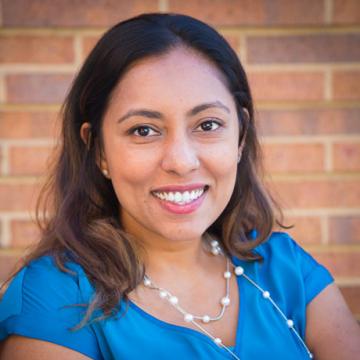
Shreya Bhattacharyya
Associate Teaching Professor, STEMM Education Program Director, and Clare Boothe Luce Professor
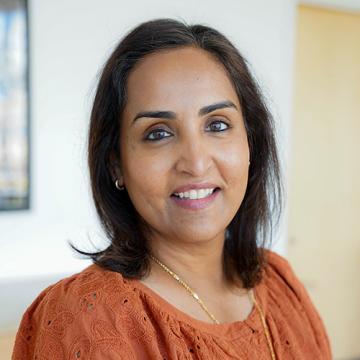
Aarti Chellakere
Associate Director of Undergraduate Advising

Tina Delouchry
Professor of Practice, Director of FNP Clinical Education, & Interim Director of Advanced Practice - FNP Programs
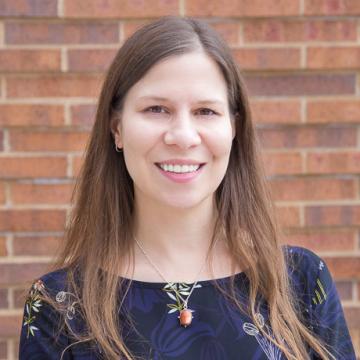
Gretchen Dittrich
Associate Professor, Chair of the Behavior Analysis Department, and Director of the Master's Program

Paul Geisler
Dean, School of Sciences & Health Professions
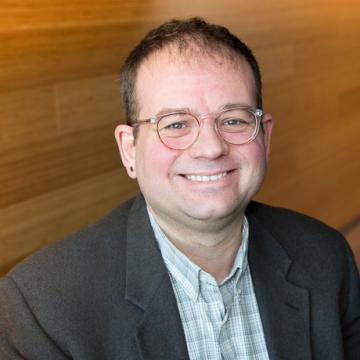
Rich Gurney
Professor and Chair of the Chemistry and Physics Department

Justin Jones
Professor of Practice

Valerie Leiter
Professor and Chair of the Public Health Department and Director of the Bachelor's Program in Public Health

Eric Luth
Associate Professor & Neuroscience Program Co-Coordinator
Caroline Lux
Pre-Health Advisor
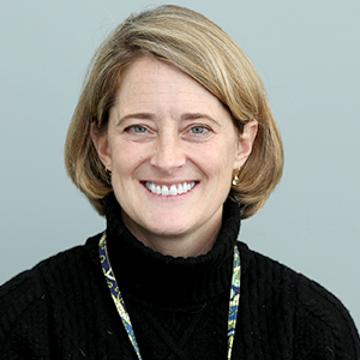
Sarah Martin
Professor
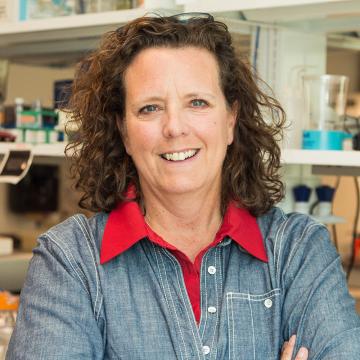
Jennifer Roecklein-Canfield
Professor

Kate Walker
Assistant Professor of Practice and Nutrition Clinical Instructor of DIP

Michael Welch
Assistant Teaching Professor and Director of the Health & Exercise Science Program




